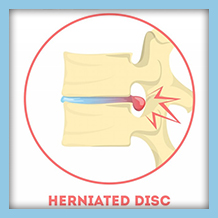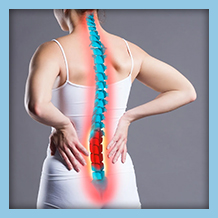

A herniated disc can be extremely painful and debilitating. Herniated discs are a common spinal condition, especially for people who engage in activities that put pressure on the spine regularly. The good news is that it’s possible to recover from this condition with the right treatment plan and dedication to getting better. It might take time and patience, but recovery is possible.
What is a Herniated Cervical Disc?
A herniated cervical disc occurs when the disc ruptures and the nucleus compress against the spinal nerve. The disc is a gel-like cushion that sits between the vertebrae in your spine and acts as a shock absorber. A herniated disc can occur when the outer wall of the disc tears and allows the nucleus to herniate or bulge out. A cervical herniated disc can cause neck pain and other symptoms. If the disc presses on a nerve, it can cause pain, numbness, or weakness in the arm or hand. Treatment options include rest, ice, heat, exercises, and surgery.
How are Herniated Discs Diagnosed?
Disc herniation is diagnosed via medical history, physical examination, and imaging tests. The most common imaging test used to diagnose disc herniation is an x-ray, which can show if there is a bulging or herniated disc. However, x-rays cannot always detect disc herniation, so other tests such as MRI or CT may be needed. If you have a herniated disc, your doctor will likely recommend conservative treatment options such as rest, ice, and pain medication. If these treatments do not improve your symptoms, you may need surgery to remove the herniated disc.
Pain Management for a Cervical Herniated Disc
Pain management for cervical herniated discs generally includes rest, ice, heat, exercises, and medication. Sometimes, a nerve root block or x-ray may also be recommended. In the early stages of a herniated disc in the cervical spine, pain may be managed with medications, such as anti-inflammatory drugs, opioids, or muscle relaxants. Physical therapy and exercises may be recommended to help strengthen the muscles around the neck and reduce tension on the discs, reducing pain.
Risk Factors for a Cervical Herniated Disc
The most common cause is wear and tear on the discs, leading to degeneration and then a herniated disc. Other risk factors include:
- Trauma to the spine
- Obesity
- Smoking
- Having a sedentary lifestyle
A herniated disc may cause various symptoms, including pain, numbness, tingling, and weakness in the arms or legs. If you think you may have a herniated disc, it is essential to see a doctor so that they can properly diagnose and treat you.
Cervical Herniated Disc Causes
A herniated disc can happen suddenly or gradually. It is most often caused by wear and tear on the discs but can also be caused by an injury. Disc degeneration is widespread in people over 30, but it can also happen to younger people who engage in activities that put excessive stress on the spine.
Treatment Options for Herniated Discs
There are several different treatment options for herniated discs. The type of treatment that is best for you will depend on the severity of your disc injury and your overall health. For some people, conservative treatments such as rest, ice, and heat may be enough to relieve the pain. Others may need more aggressive treatments such as physical therapy, epidural injections, or surgery. If you have a herniated disc in your cervical spine, it is essential to seek treatment as soon as possible to avoid further damage to your spine.
Schedule an Appointment With Spine Surgeons
Herniated discs can be extremely painful and debilitating. Various treatment options are available, depending on the severity of the herniation. For milder cases, over-the-counter pain medication and ice packs may be enough to ease the pain. More severe herniations may require physical therapy, epidural injections, or surgery. If you think you may have a herniated disc, you must see a doctor for an accurate diagnosis and discuss your treatment options. You may have more options to choose from than you think.
If you’re looking for a trustworthy and experienced spine surgeon, consider Orthopedic Laser Spine Surgery. We have experience providing solutions for patients suffering from cervical herniated discs, whether through prescription medications or surgery. Call us at (855) 853-6542 or fill out our online form to schedule an appointment.
